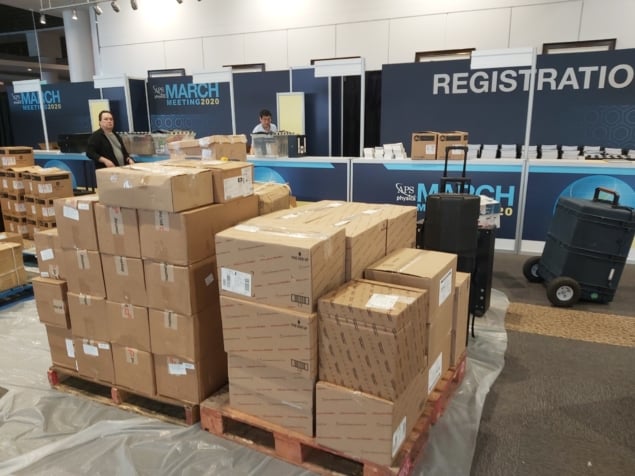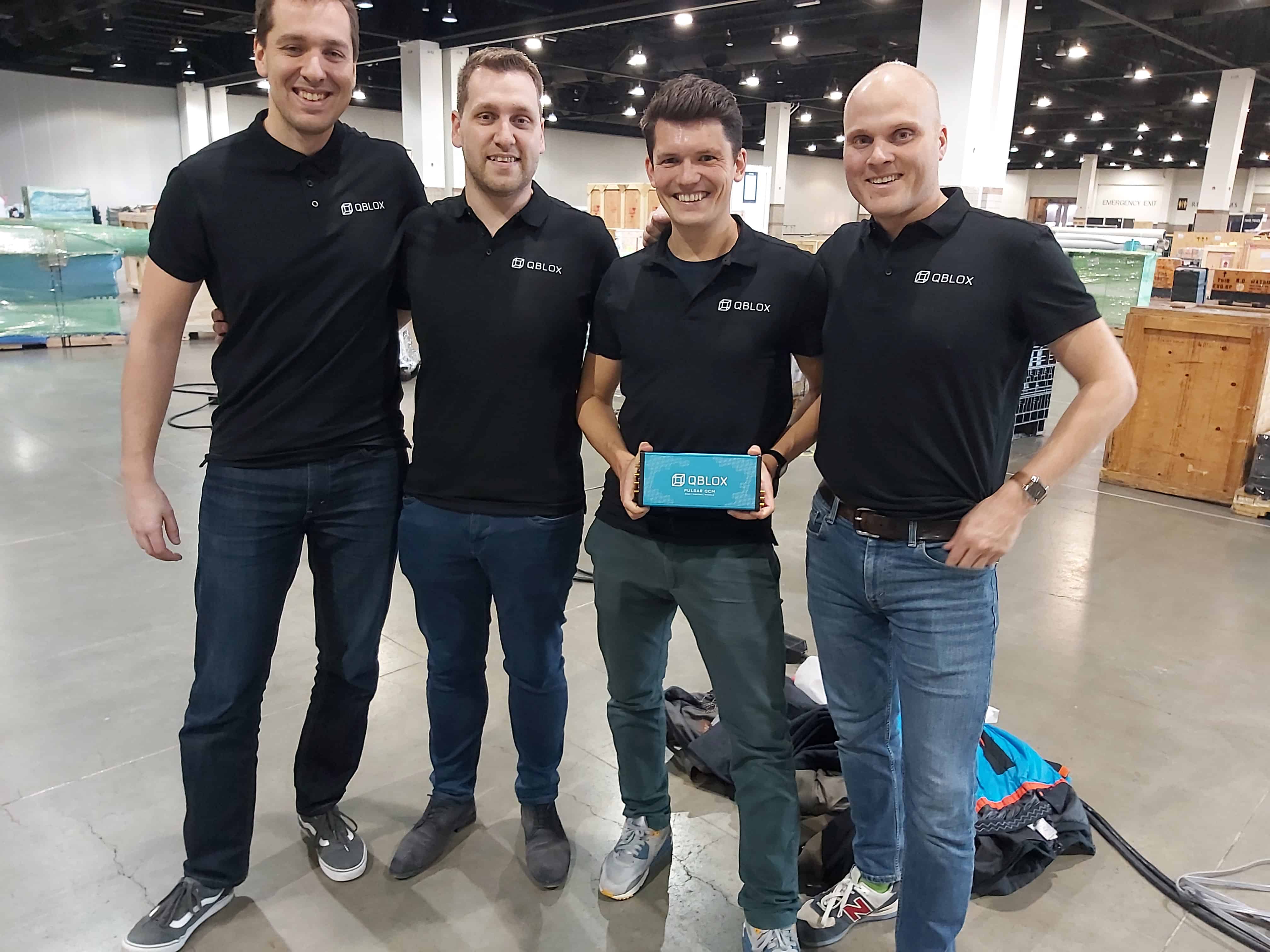
Thousands of delegates to the March Meeting of the American Physical Society (APS) in Denver have had to cancel flights to Colorado or rearrange their journeys home after the decision to cancel the world’s biggest physics meeting.
The APS’s decision to abandon the event was taken late on Saturday 29 February, less than 36 hours before the meeting in Denver was due to start. It was cancelled “with deep regret” due to what the society said were “rapidly escalating health concerns” over the spread of the coronavirus COVID-19.
The March Meeting – the biggest in the physics calendar – is usually attended by about 10,000 delegates from all corners of the globe, including many from China, where the virus originated.
“The health and well-being of our meeting attendees, staff, vendors, and the Denver community are our primary concern,“ said APS president Phil Bucksbaum in a statement released on Sunday afternoon. “We recognize and sincerely regret that the timing of this decision has significantly inconvenienced many members of our community.”
Concerns raised

But the late cancellation prompted a strong reaction from many attendees, especially those from overseas who only found out once they were on their to way Denver or who had already arrived.
“I completely understand this decision taken, but the timing on this is appalling,” tweeted Ilana Wisb, chief executive of the UK firm Oxford Quantum Circuits. “Our team have just flown half way across the world to learn that this is cancelled on landing.”
Matthew Wright, a physicist at Adelphi University in New York, said the last-minute cancellation had led to a “chaotic shit storm of travel changes for me and my undergrad students”. He claimed on Twitter that the APS will get “some serious heat” for the decision, but admitted “it was likely the right thing to do”.
Other delegates, like Zhe Li, a biophysics PhD student at Purdue University, wondered why other international events, such as the Geneva Motor Show, were cancelled weeks or months before they were due to take place. “APS should have done the same thing,” he tweeted.
Meanwhile, Santiago Núñez-Corrales, a PhD student at the University of Illinois Urbana-Champain, expressed concern over the financial impact on students. “This tardy cancellation, while responsible in terms of wider health concerns,” he said, “has profound consequences for us graduate students by increasing financial vulnerability as many people paid out of pocket from limited stipends, and will have to contend further expenses to get back.”
But others on Twitter defended the APS’s decision. Masaki Oshikawa, a solid-state physicist from the University of Tokyo in Japan, tweeted that “given the current situation in the US and in the world, this is a right decision. It must be very hard to cancel such a big and important meeting at the very last minute, but kudos to APS for the swift decision.”
Eerie and empty
Over at the Denver Convention Center, where the March Meeting was due to take place, the corridors were eerily silent on Sunday morning as delegates who were in Denver took stock of the cancellation.
“Cancelling the event didn’t surprise me but this would have been a big decision for the APS to make and not one they would have made lightly,” Daniel Lathrop from the University of Maryland told Physics World.
As chair of the APS’s topical group on statistical and nonlinear physics, Lathrop and colleagues had organized more than 50 sessions, each featuring about a dozen different speakers. He particularly regretted the fact that eight talks by students and postdocs who had won prestigious awards from the group were unable to take place.
“The APS March Meeting is an important event that leads to the exchange of ideas, especially among young scientists,” Lathrop said. “Some of our awards stipulate that winners have to give a talk, which is a real chance for them shine and advance their careers. We need to find a new venue for them to appear.”

In the cavernous exhibition hall, fork-lift trucks spent Sunday shifting packing cases out of the building, while a handful of staff from physics-based companies loitered wondering what to do next.
One of those firms affected by the cancellation was Qblox, a start-up business from the Netherlands, which makes electronics to control quantum chips.
The company’s five staff had spent three weeks working flat-out to create a demonstration for the exhibition and had spent more than €18,000 on exhibition space, flights, travel, hotels and shipment.
American Physical Society cancels March meeting in Denver due to coronavirus outbreak
“I can fully live with the decision to cancel the meeting, which makes perfect sense, but if we had been told just 24 hours earlier, that would have made a tremendous difference, not just financially but in terms of time,” says quantum physicist Niels Bultink, who founded Qblox in 2018.
Despite his disappointment, Bultink still thinks that the March Meeting is vital for firms like his to showcase their wares. “I hope the March Meeting can be postponed till the summer – that would be the best outcome. The event helps to focus our minds as a company and fortunately all the time we invested is not wasted.”




